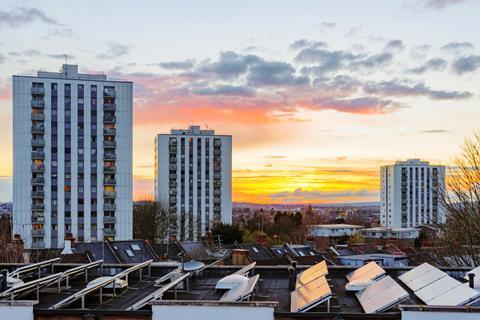Policy will end despite DLUHC asking the Treasury for an extension
The government has confiirmed a policy that allowed councils to retain 100% of revenue from right to buy (RTB) sales will end in April.

The policy has been in place for two years and was due to expire in April. A DLUHC spokesperson confirmed the scheme will end to Housing Today this morning.
However it is understood DLUHC lobbied the Treasury unsuccessfully for an extension.
The chancellor’s decision to terminate the policy in April was reportedly made as part of deliberations ahead of the Spring Budget last Wednesday. The policy reportedly contributed between £180m and £200m per year to local authority housing budgets.
The RTB policy, introduced by Margaret Thatcher in 1980, allows council housing tenants to purchase their homes at a discounted rate, depending on how long they have lived in the property.
Under a relaunch of the RTB scheme in 2012, the size of the discounts was increased to a maximum of £87,200 across England and £116,200 in London.
In February this year, the Local Government Association (LGA) asked that the government allow councils to retain 100% of right to buy receipts permanently, on the basis that it would put councils in a greater position to fund the delivery or acquisition of new social homes.
The withdrawal of the policy comes as councils face significant financial challenges. A further 63 English councils have warned that they may have to issue a section 114 notice within the next year, a process that is triggered when a local authority cannot set a balanced budget.
Before last March, when the government announced that councils would be allowed to retain 100% of RTB receipts for two years, it had a policy where local authorities were required to return between 20% and 25% of RTB revenues to the central government.
The specific percentage varied based on individual agreements between councils and the government.
According to Whitehall insiders, figures submitted to the treasury indicate that the policy contributed between £180m and 200m per year to local authority housing budgets.
>> See also: Money, trust and freedom: What councils need in order to build more homes
>> See also: What happens to housing development plans when a council goes ‘bankrupt’?
The LGA has said that the government has “missed a key opportunity” by failing to allow councils to keep 100% of RTB receipts permanently and says that it will only continue to contribute to the loss of social housing stock in the country.
LGA figures indicate that the sales of homes and demolitions coupled with a significantly reduced council housebuilding programme have resulted in an annual net loss of 24,000 social homes since 1991.
DLUHC confirmed that the policy would be ending in April.
A DLUHC spokesperson stated: ”This policy was only meant for a limited time, and so it was always the case that it would eventually be terminated – or come to its expected end.”
The Treasury declined to comment.











No comments yet